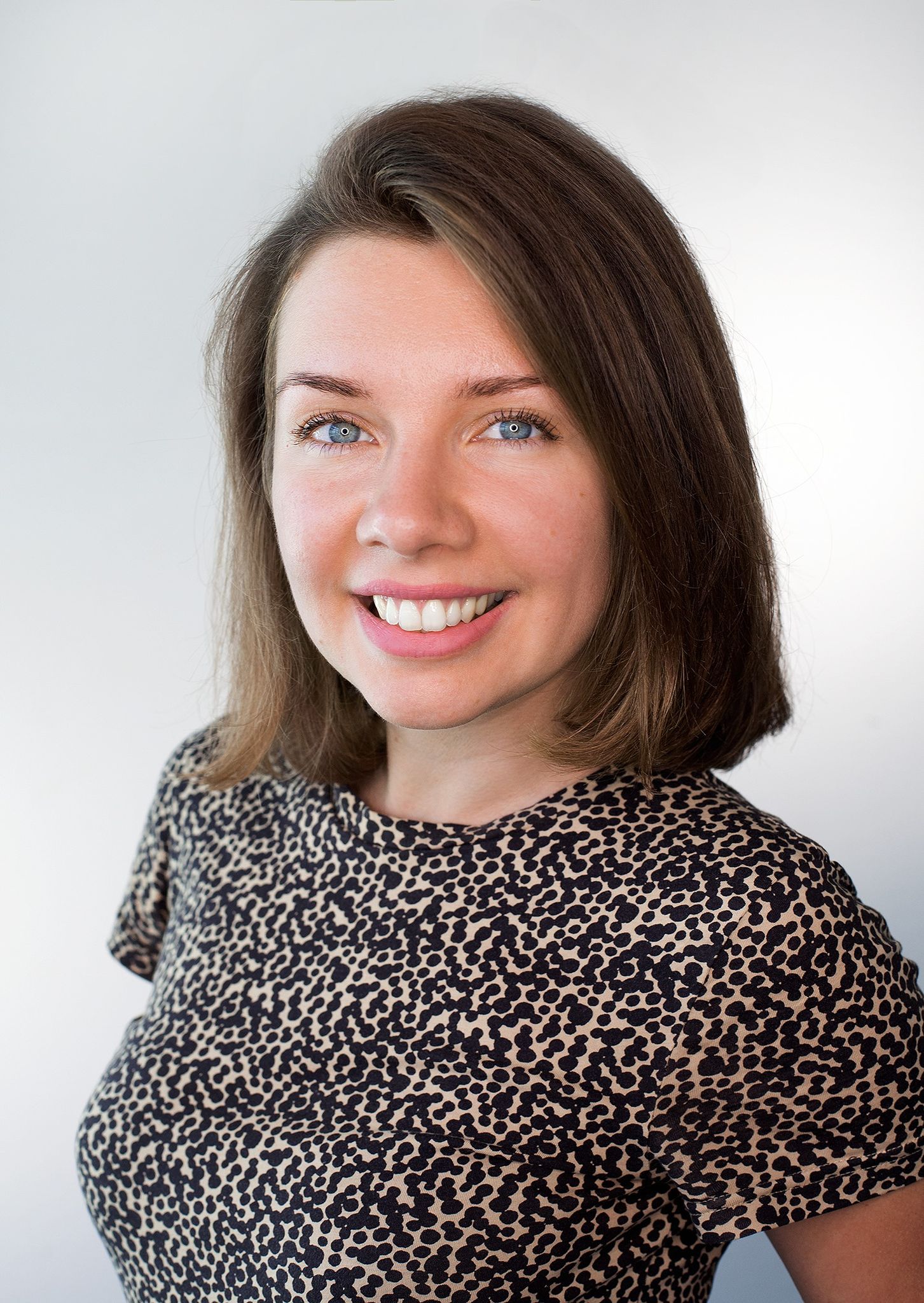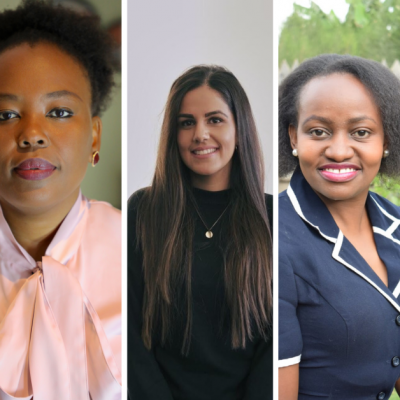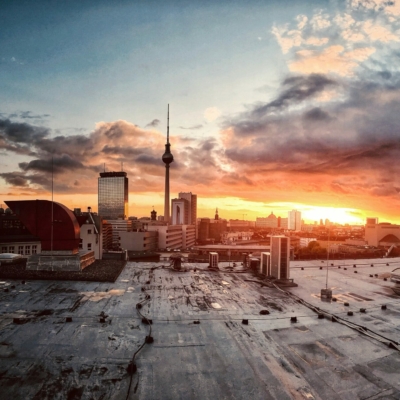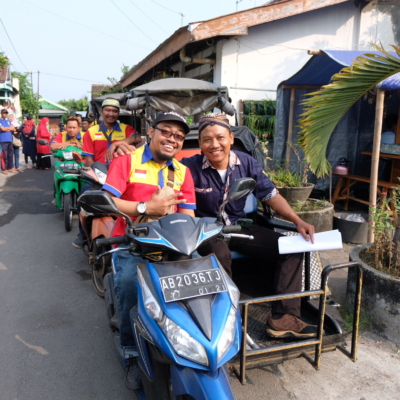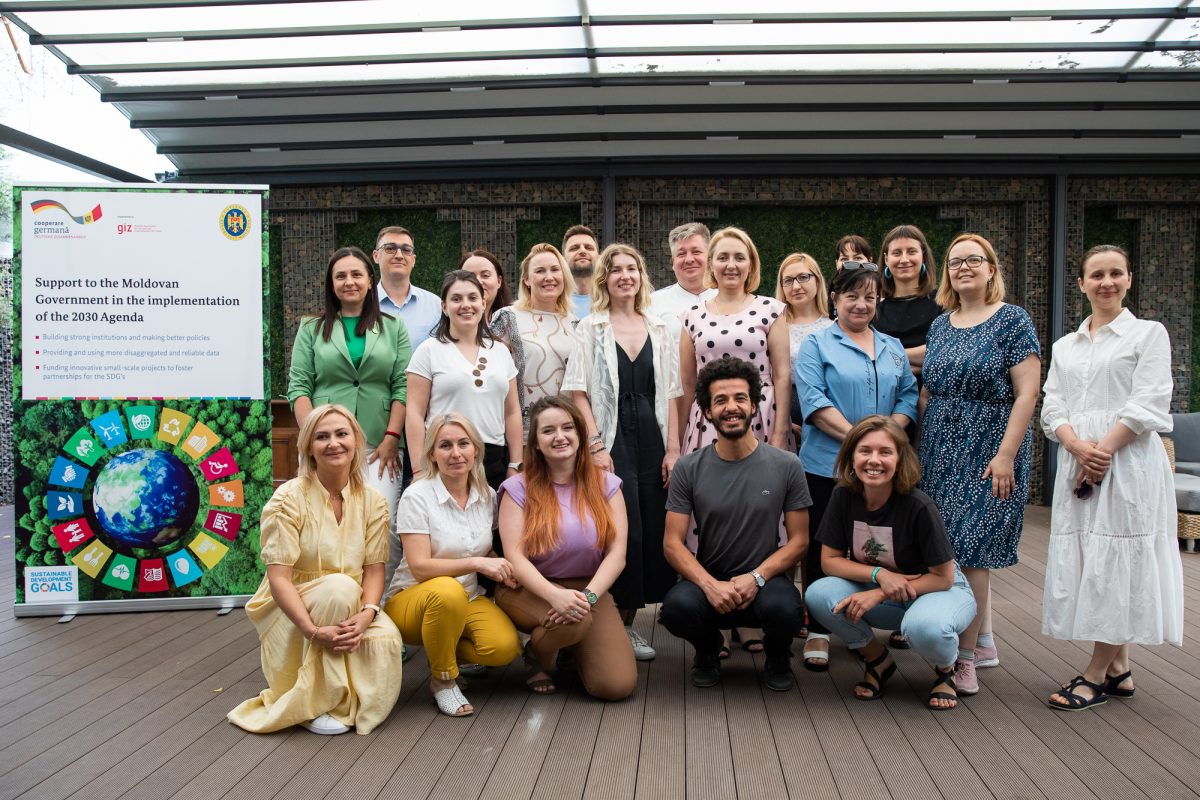
Empowering six teams towards advancing SDGS in Moldova
In spring-summer 2022, enpact expanded its activities to a new country and even a new region – Eastern Europe! Together with our partners at GIZ (Deutsche Gesellschaft für Internationale Zusammenarbeit), we started the Program Designers Lab Moldova (PDL Moldova) focused on supporting six social impact projects in advancing in Sustainable Development Goals. The program was a part of the GIZ Moldova project “Support to the Government of the Republic of Moldova in the implementation of 2030 Agenda” and aimed at equipping the participating organizations with practical tools and knowledge to secure the sustainability of their projects.
The program involved six target groups, six different profiles and approaches, all together creating a holistic impact and facilitating the progress and change towards reaching the goals of Sustainable Development on the country level.
Let’s take a closer look at the participating projects!
Team 1: AEER Alliance for Energy Efficiency & Renewables
With their project Towards Sustainable, Green and Efficient School the team of AEER is not only raising the awareness of the Moldovan educational sector to SDGs and educating local communities in developing more sustainable and greener environments, but also distributes the manual with practical recommendations and tools on improving these environments and supports their partner schools with purchasing and implementation of greener equipment, as well as lobbies for the more attention and support of public authorities towards the critical conditions of the local schools.
“We can see that our society is deeply concerned about such issues as climate change, cleaner environment, energy efficiency, energy security, and these are the issues that make up the sustainable development goals we’re working towards. We are working with 12 schools that are contributing to improving the situation on a local level by better managing their local resources.” – Irina Plis, AEER.
The project supports schools in evaluating their use of resources, identifying problems and building solutions. They offer a team of experts that help the school with capacity building. For them, the focus on school stems from the fact that this is the environment where children and teachers spend the majority of their day and it shapes all other aspects of their lives. To date, they have engaged over 1000 students and teachers.
The project’s main goal is to scale up these successes on a national level. The team wants to promote the best practices, the best environmental solutions, throughout the whole Republic of Moldova. They also aim to reach out to students and teachers in other schools and as well as to promote this project with national stakeholders such as the Ministry of Education, with the goal of advocating for environmental education to be included in the curriculum across all levels.
“This is why the training is of great help so we can structure our roadmap on which direction to go on, which stakeholders we should work with, which are the main problems we are addressing for our communities and how to propose solutions on the national level for the development of these projects.”
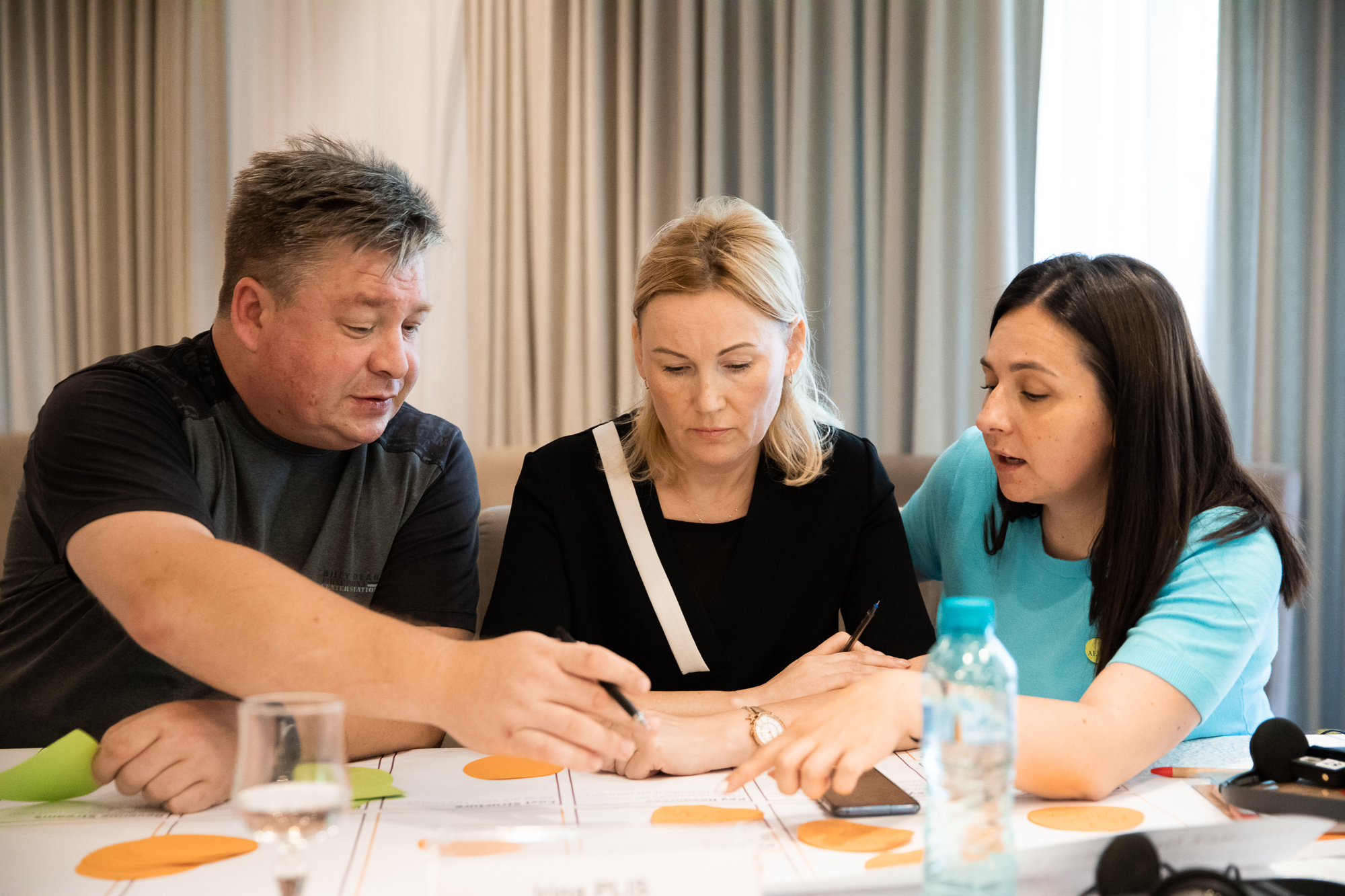
Team AEER is focused on contributing to SDG 7: Affordable and Clean Energy, SDG 4: Quality Education, SDG 8: Decent Work and Economic Growth, SDG 12: Responsible Consumption and Production, and SDG 13: Climate Action.
Team 2: Rainbow of Hope
The organization Rainbow of Hope operates in the town Vadul Lui Voda and aims to provide better opportunities to children from underprivileged families as well as help to get their parents back on track and equip them with tools and skills to provide proper care for their children. The organization offers a holistic approach that tackles educational, social, and health issues, as well as psychological and financial counselling, and fights the stigmatization of children from families with lack of access to resources.
“The idea of the project came to us last year when we noticed how traumatizing it was for the children living in our center to be living away from their families. Therefore, we decided to launch a project that can help the children without separating them from their parents. Due to the support of GIZ Moldova, this idea became a reality. We are happy to observe the outcomes of our work, we got to know the families and were grateful to gain their trust which enabled us to positively create impact together.” Natalia Postolachi, Rainbow of Hope.
In order to create a happy and healthy environment for the kids, first of all, it’s necessary to help their parents, therefore Rainbow of Hope provides them with the legal and social support needed. 25 families from Vadul Lui Voda were selected to receive individually tailored support, which included also material goods in order to improve the living conditions of their children. The needs of the families vary: some might need a new bed, others – a desk to be able to do their homework and materials to perform better at school. Together with the group of experts, team Rainbow of Hope has developed a training series for the children on diverse topics such as self-respect, responsibility, sex education, and building up relations with their peers. Their parents have their own training program which is mostly focused on creating healthy relations with their kids and creating space for their needs.
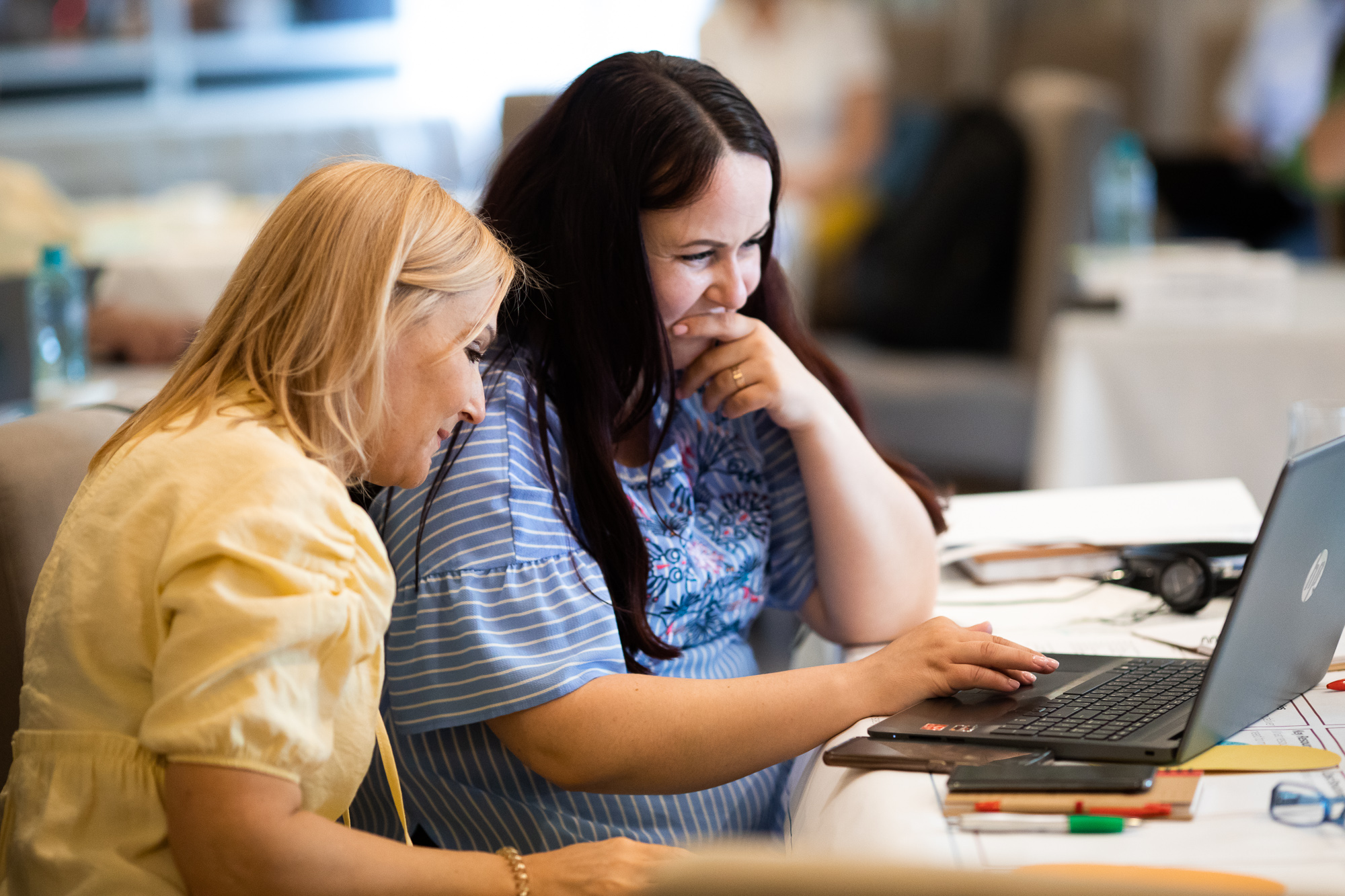
Team Rainbow of Hope is focused on contributing to SDG 1: No Poverty, SDG 2: Zero Hunger, SDG 3: Good Health and Well-being, and SDG 4: Quality Education.
Team 3: SHARE
Another organization working with communities that lack access to resources is Regional Center for Community Policies. Their project SHARE reintegrates former inmates and people recovering from addiction into the job market and subsequently into society. There’s a huge stigma against this group, which severely minimizes their chances of building a career, getting education, starting a family and creating a decent life. This stigma and frustration often lead to a higher rate of recidivism and relapse. To combat this, SHARE creates a safe space for them and offers them opportunities to start a new professional path and get their life back on track. SHARE applies a holistic approach in their work: they pick people up straight upon release and offer them professional training followed by a first work placement, along with healthcare, psychological support, and a friendly peer environment. At the moment, there is successful cooperation with one local business that employs SHARE’s beneficiaries, but the project has ambitious plans to involve more businesses across the country and actors on the national and local levels.
“The project started from a dream that one former inmate, Vladimir, had in his heart after his last release 13 years ago. His dream was to create a business with the goal of not only being profitable but for providing employment opportunities for people who have a prior record or prior struggles with addiction and pave a path for them to reintegrate into society. This company is now one of the biggest in the industry for tempered glass and metal construction on the local market. 80% of all employees of the company, including all the leadership positions, are from our community, are people who were formerly stigmatized and excluded due to their history.” – Alexander Kurashov, Regional Center for Community Policies.
The idea came when Alexander’s path crossed with Vladimir’s four years ago and they decided that they wanted to share this business case with the world and use it as the foundation to build their NGO and jumpstart the SHARE project. They have helped over 300 people, found jobs for over 200 people, and are supervising 70 people at the moment.
With the support of the SDG Innovation Fund, they have also added a gender-specific focus to their operations. Their goal is to create a methodology that can be scaled and applied in different places around the world, build a mechanism on the state level to finance these services, and involve more companies that are open to providing equal employment opportunities for their groups that have been systemically excluded.
SHARE is striving towards SDG 3: Good Health and Well-being, SDG 4: Quality Education., SDG 5: Gender Equality, SDG 8: Decent Work and Economic Growth, and SDG 10: Reduced Inequality.
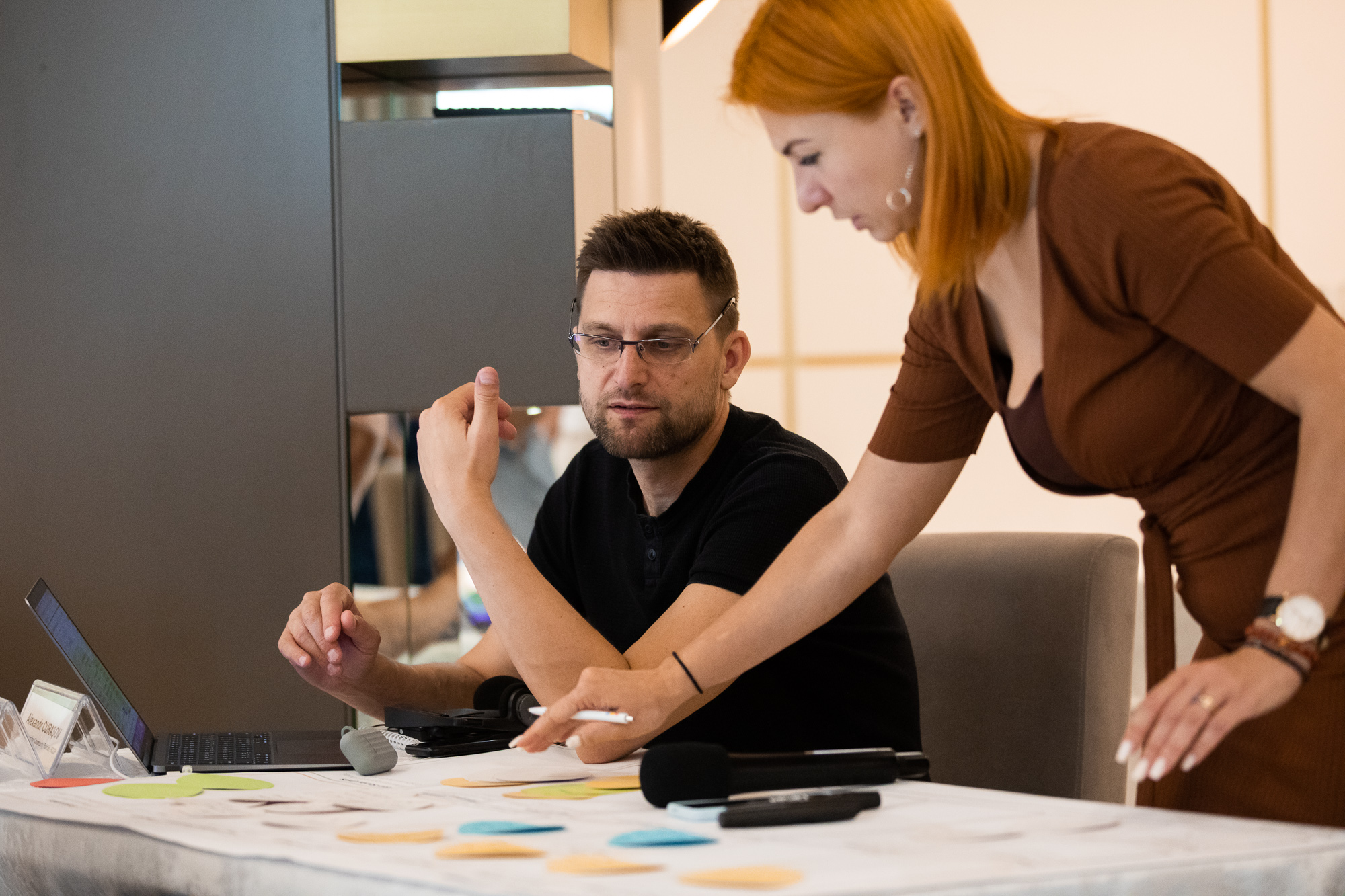
Team 4: SMART planning
Another impactful project that took part in the program is SMART planning in the water sector in North Development Region of the Republic of Moldova by the North Regional Development Agency. The project is focused on developing water and sanitary infrastructure in the region covered only 50% with clean water. The activities of the project include closing the information gap on water & sanitary infrastructure for local authorities, informing and training agri–preneurs on sustainable and efficient usage of water resources, and raising awareness, and educating local communities on the efficient use of clean water. Apart from that, they are working actively on enhancing the strategic documents with recommendations on improving the water infrastructure. By now the project managed to secure water equipment for a number of schools, which not only provided them with clean water but also helped to lower the water supply costs.
North Regional Development Agency is focused on SDG 6: Clean Water and Sanitation, SDG 13: Climate Action, SDG 3: Good Health and Well-being, SDG 11: Sustainable Cities and Communities and SDG 4: Quality Education.
“According to statistics, our region has the smallest coverage with water and sanitation infrastructure. This is why smart planning is important to attract donors and investors into the sector. For the future, we are trying to replicate the models we are developing within our project to the whole region and work with other development agencies to replicate it on the country level.” – Victoria Zabolotnii, North Regional Development Agency.
The tools that the project is developing will contribute to improving the capacities of the local communities so that they will benefit from better tools to be more efficient in order to meet the existing needs in the sector.
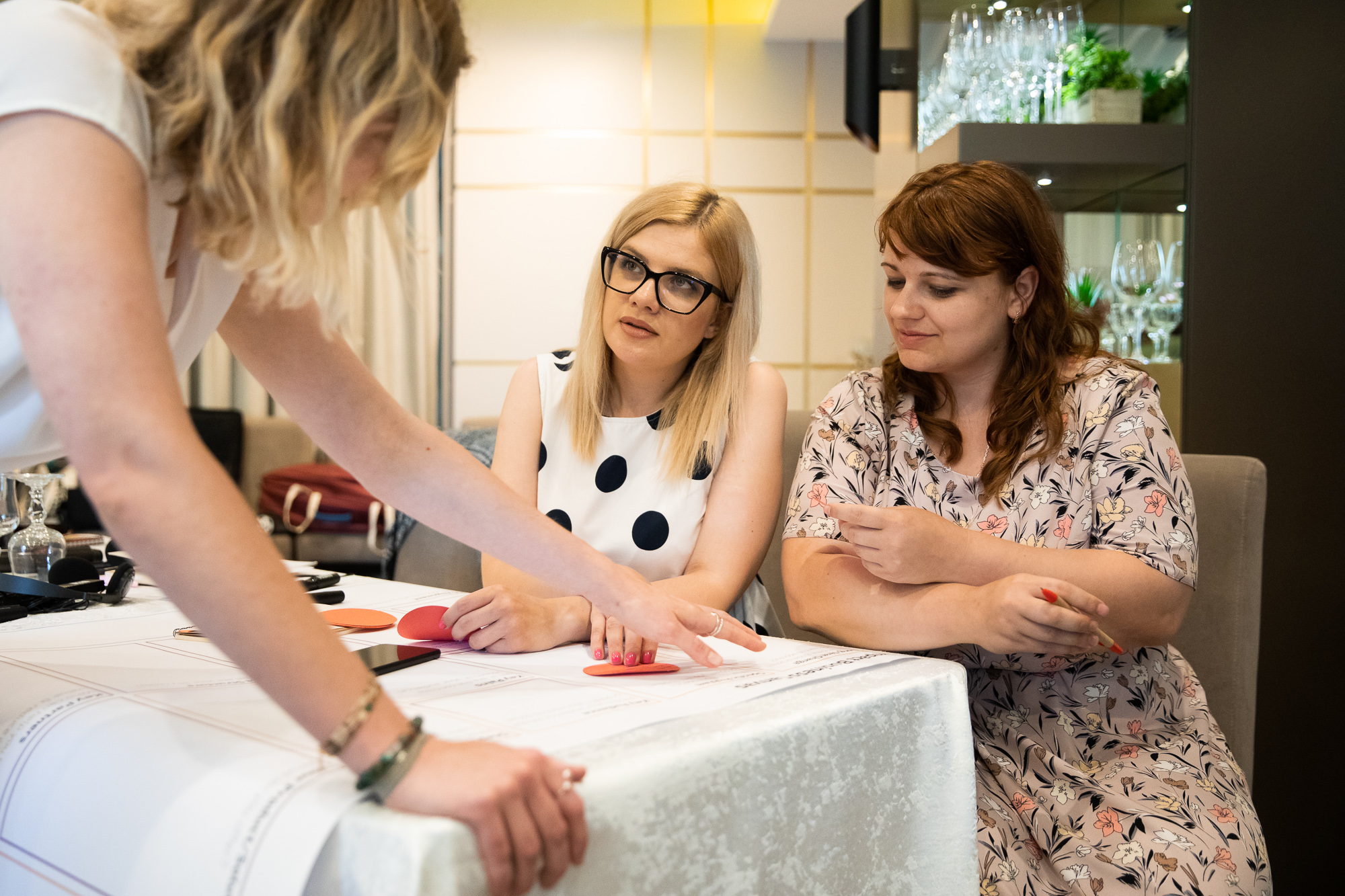
Team 5: Ecovisio
One more ambitious project who has its goal to improve Moldova’s urban infrastructure is Moldova on Bikes by NGO Ecovisio. Air pollution, traffic jams, parking lots instead of urban spaces, lack of environmental-friendly non-motorized transportation and infrastructure for it – all of this doesn’t belong to a modern city, and Ecovisio suggests a simple solution for it: developing a cycling culture. The project is actively popularizing biking through events and informational campaigns, advocates and cooperates with local and central authorities to improve the biking infrastructure and develop a new mobility plan for the cities. The project managed to build up a strong and growing biking community in Chisinau and is actively consulting the city authorities on all possible bike matters.
“Our aim is that by the end of the project we have bike trails outside Chisinau that people can explore in their free time. My hope is to bring more people on bikes and other alternative transportation modes in Moldova and show that this is really the future of mobility in our cities and across our countries to create a more sustainable community through contributing to improving air quality, improving day-by-day commutes and promoting more active lifestyles.” – Ana Popa, Ecovisio.
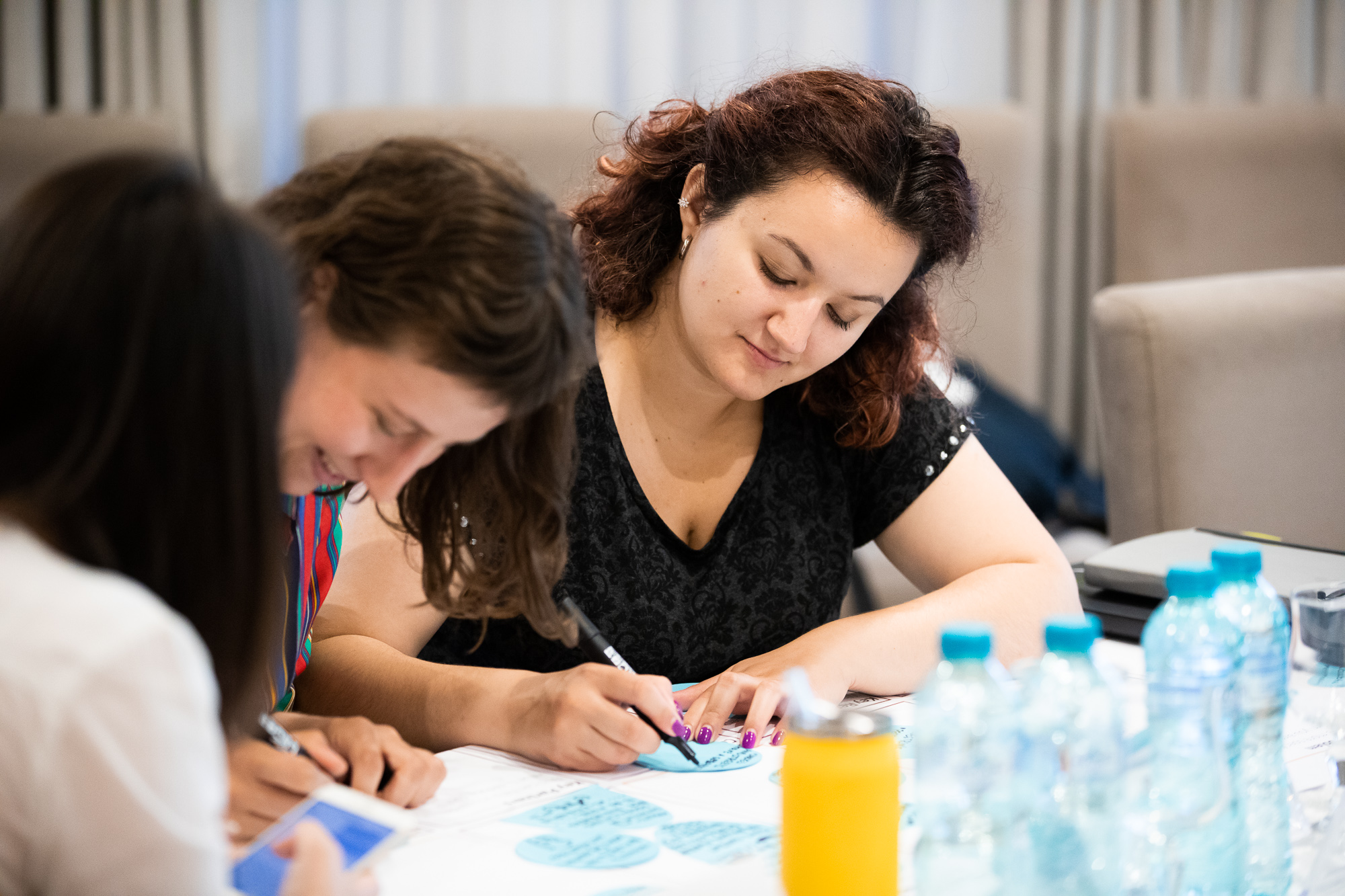
Moldova on Bikes is riding after SDG 11: Sustainable Cities and Communities, SDG 13: Climate Action, SDG 3: Good Health and Well-being and SDG 8: Decent Work and Economic Growth.
Team 6: SOS Autism
Finally, there’s SOS Autism – the project aims to establish a mechanism for the identification, testing, and treatment of children with autism in Moldova. Currently, SOS Autism is the only organization in the country accredited with both medical and educational licenses to help autistic children. The organization is working actively in several directions: policy-making, training medical specialists, creating a support network for families with autistic children, running an informational campaign, and fighting the stigma around autism.
”This project is very important for us and for the children with autism from the Republic of Moldova because the social part of the assistance is not yet fully regulated. Even if we have remarkable successes in the medical field, in the social one we still have a lot of work to do. In the project we set out to create a precedent, to organize the Mobile Team to work with the specifics of children and young people with autism. To accredit the social services that will offer the possibility to over 3000 children from the Republic of Moldova diagnosed with autism to benefit from quality social services and at the same time to have a collaboration on partnership principles with the competent bodies of the state both at central and local level.” – Aliona Dumitras. SOS Autism.
SOS Autism is following SDG 3: Good Health and Well-being, SDG 8: Decent Work and Economic Growth, SDG 10: Reduced Inequality, and SDG 11: Sustainable Cities and Communities.
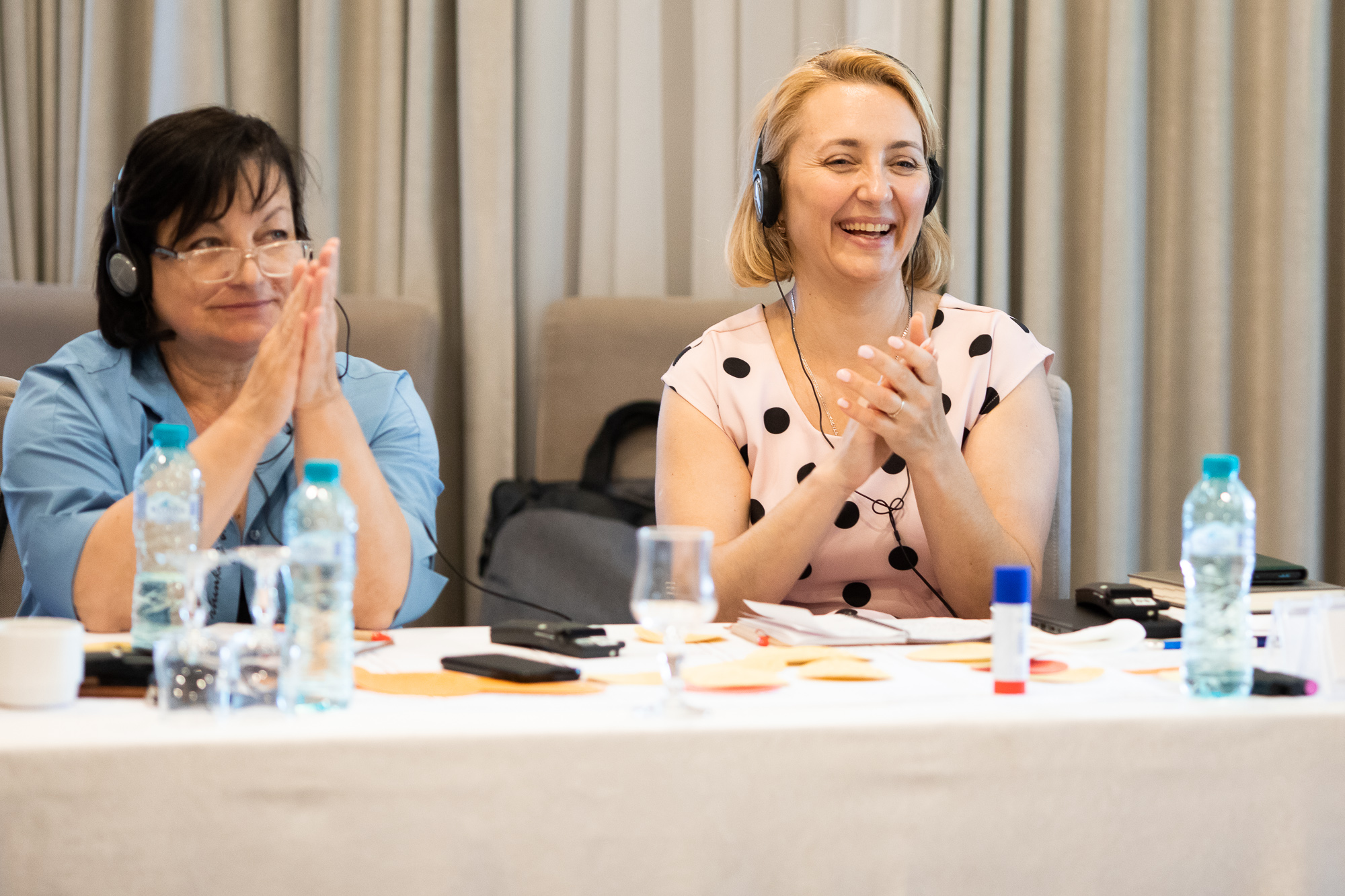
In order to support such diverse and far-going projects and teams on their path to sustainability, enpact and GIZ Moldova have developed the strategy to address their long-term vision and define the major desired outcomes for each project. After collecting and analysing the needs of the participants, we have designed and implemented a cycle of workshops led by experts in each field.
The first online session was held in May and focused on tools and methodologies of Design Thinking. During the workshop, we focused on how to streamline designing and implementing support services with the final beneficiaries.
This session was followed by the workshop on SDGs and Agenda 2030, conducted by experts from tech2impact and SDSN Black Sea. The participants learned to set their own objectives based on Sustainable Development Goals as well as use diverse tools to measure their impact.
However, the highlight of the program was the bootcamp in Chisinau in June where we met with all the participants, colleagues from GIZ Moldova, and experts from tech2impact. For two days the participants were working together with their teams on mapping and managing their stakeholders, and later on creating a sustainable financing and fundraising strategy for their projects. Apart from that, the participants took part in a session on effective techniques of pitching their ideas and we concluded the bootcamp by practicing the newly acquired skills in a pitching round.
Needless to say, after two years of online meetings, an in-person event was a breath of air in itself, which definitely helped us to build meaningful connections among the participants. Following the workshop, the participants worked to finalize the sustainability roadmaps, which were developed individually for each project. Sustainability roadmaps summarize the work already done by the teams and outline their vision of the future, supported by suggestions of the next steps and accompanied by clear targets and time frames set by participants themselves.
As it was the first experience for enpact in Moldova and Eastern Europe in general, we had to get familiar with the peculiarities of the region, its problems as well as with entrepreneurial and non-profit landscape. We have discovered an incredible potential and demand for innovation, cooperation, and exchange. enpact is looking forward to continuing working with Moldova and the local entrepreneurs and community.
